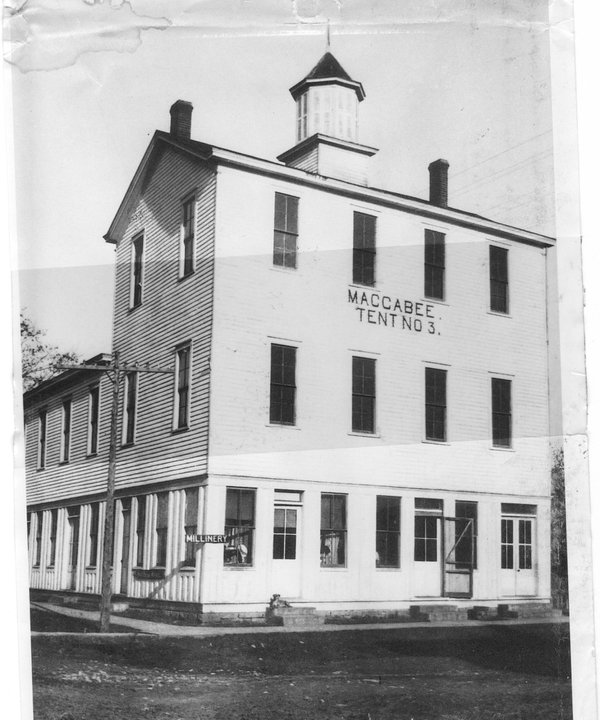Welcome to our site
The Mt. Washington Historical Society is dedicated to the preservation of our community's rich heritage.

The road to "Mount Washington"
The late 1780s saw a few cabins and small farms began to appear in the vicinity of an establishment operated by an Indian trader and trapper one mile north of the Salt River and "the Wilderness Road". The notorious 'rough and rowdy' reputation of the trading post coupled with the burning furnace of a nearby iron smelter led to the area being referred to as "Hell's Kitchen".
In the early 1800s, to create a more direct route from Louisville to Bardstown, a north-south route was cut through to Greenwells Ford on the Salt River. The place where this road intersected the road running from Shepherdsville became commonly known as "The Crossroads" - a connotation that remained for decades to come.
In 1818, Catherine Drake was granted permission by the County Court to sell off 50 of the 100 acres at "The Crossroads" owned by her late husband, Joseph Hough, in order to settle his estate and provide care of their son Christopher. These 50 acres were laid off and sold as lots to become a town named "Mount Vernon" in honor of George Washington. By late 1819, nearly all of the 80 lots had been sold, and in 1822 the town was incorporated and trustee appointed. A booming suburban community was born!
In the mid 1820s a petition to open a U.S. Post Office was denied - alas, there was already a town in Kentucky named Mount Vernon! Still wishing to pay tribute to our nation's first President, the trustees proposed a name change, and in early 1828 the town became "Mount Washington".
Following an act of the Kentucky General Assembly in 1833 establishing a city boundary and directing election of city officials, city government was officially formed at the beginning of 1834.
Growth at "the Crossroads" ...
The mid-1800s saw continued growth of "the Crossroads" as a point-of-service for travellers, wagons and horses at this busy intersection of stagecoach and freight routes. In addition to the hotels and eateries, there were two blacksmith shops, a tannery that made harnesses and saddles, liquor distillers, a flour and lumber mill with a wood turning lathe for the making of fine furniture and cabinetry, three limestone quarries and two full-time makers of burial caskets! Squire Fidler hand-crafted ornate Kentucky long-rifles on Main Street. Freeman Ramsey, a long time acquaintance of Stephen Foster, crafted "piano Forte" pianos on West Street.
In the early autumn of 1862, Confederate cavalry briefly occupied the town. Artillery fire at the Floyd Fork heights from the advancing Federal army drove the Confederates southward. A few days later, this Federal Corps engaged General Braxton Bragg's Confederate army on the battlefield at Perryville - the fight that decided the fate and future of Kentucky in the Civil War.
The heart of a community ...
The turn of the century brought continued growth to "the Crossroads". Originally constructed as the meeting place of the Fraternal Order of the Maccabees, the 4-story "Maccabee Hall" located on the south-east corner of "the Crossroads" became the centerpiece of the community. For four decades area residents enjoyed the first story shops and restaurants and attended plays, concerts and other performances in the upper story theatre and stage. On warm summer nights, motion pictures were shown on its white exterior.
Late on the windy night of November 18, 1940 fire broke out. Fanned by the high winds, Maccabee Hall was quickly engulfed in flames, and lacking a fire department, only the actions of local citizens and the arriving help of fire crews from Louisville and Jeffersontown prevented the flying embers from consuming the entire business district. Shortly thereafter, Mt. Washington had a fire department!
...and the 'history' continues!!
Email:mtwashingtonhistory@gmail.com
